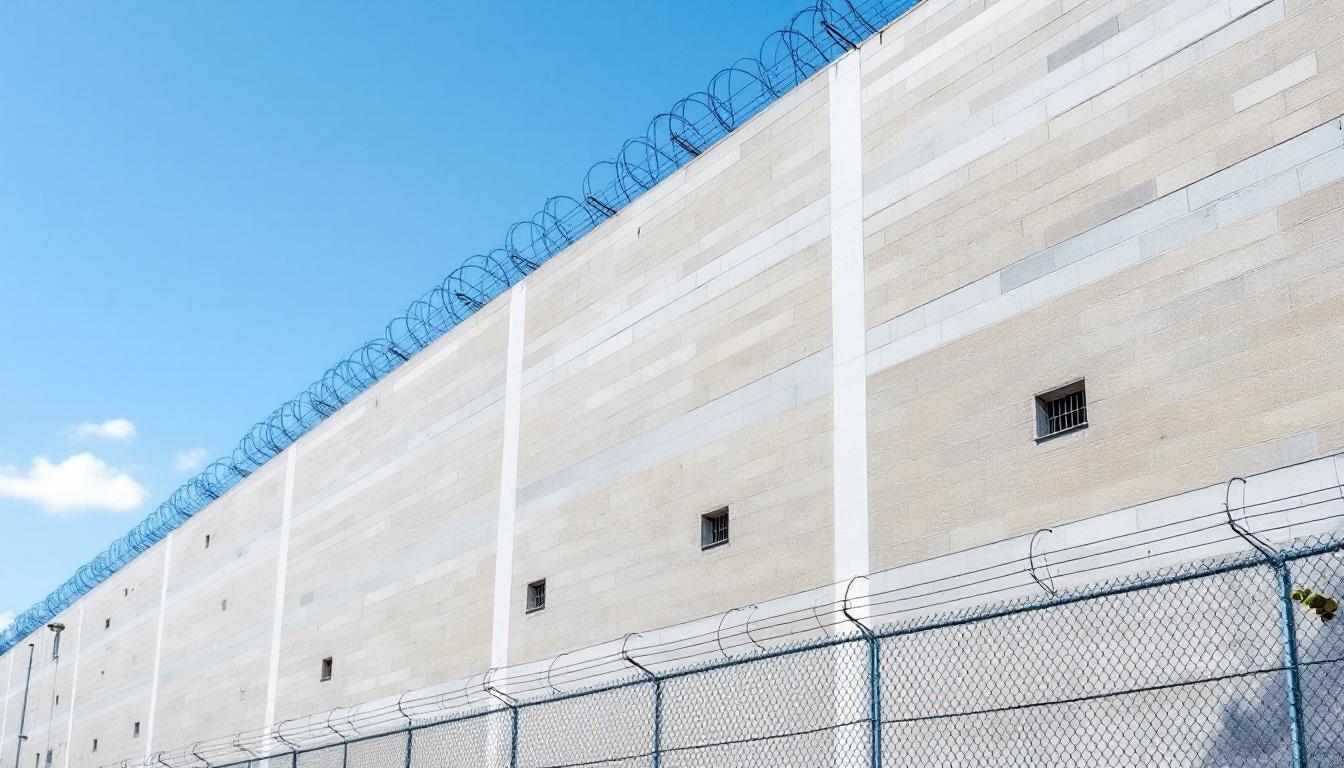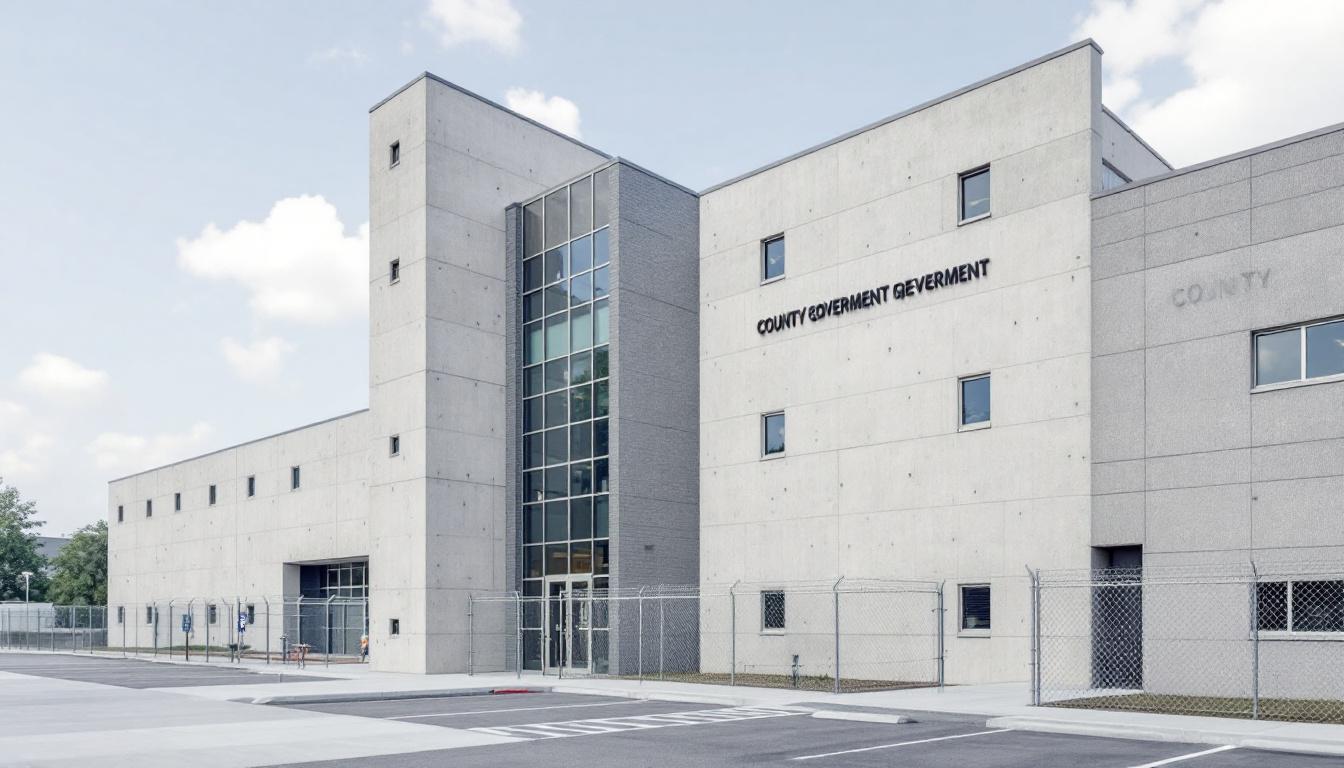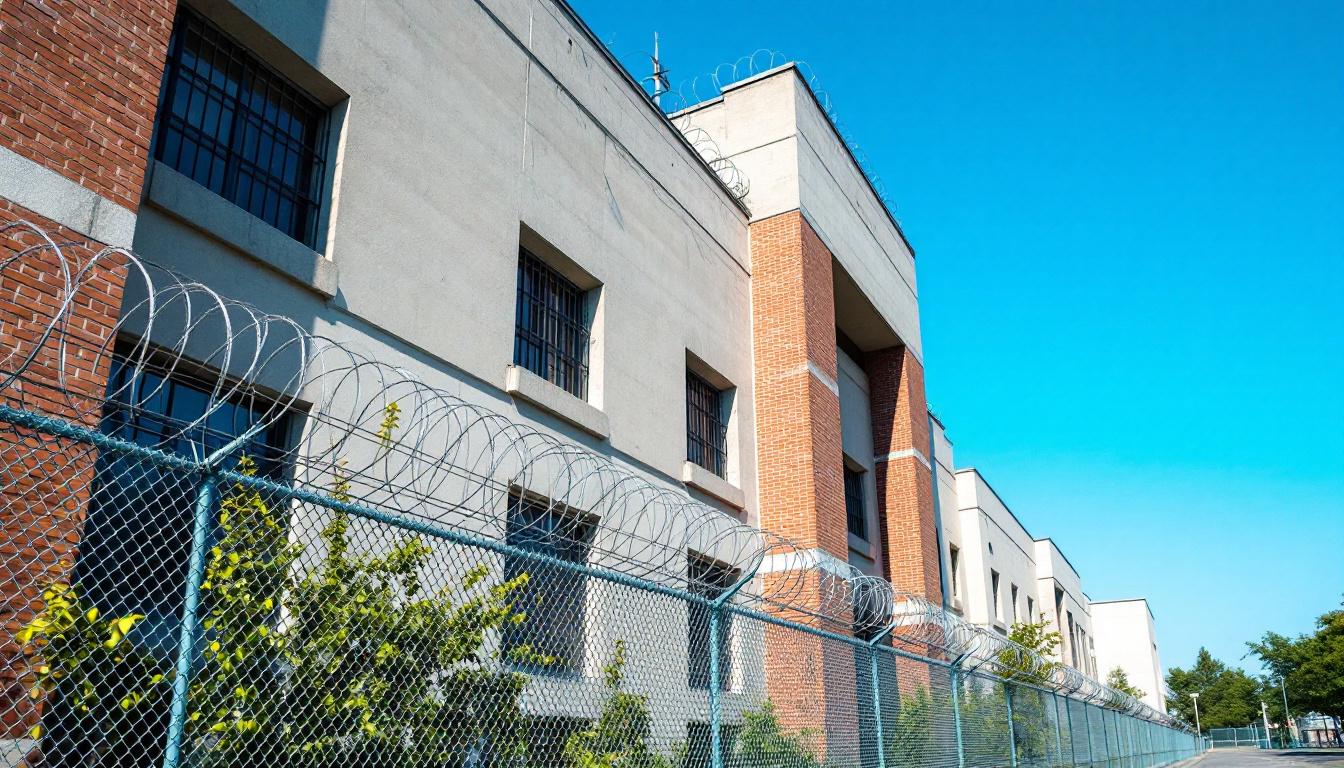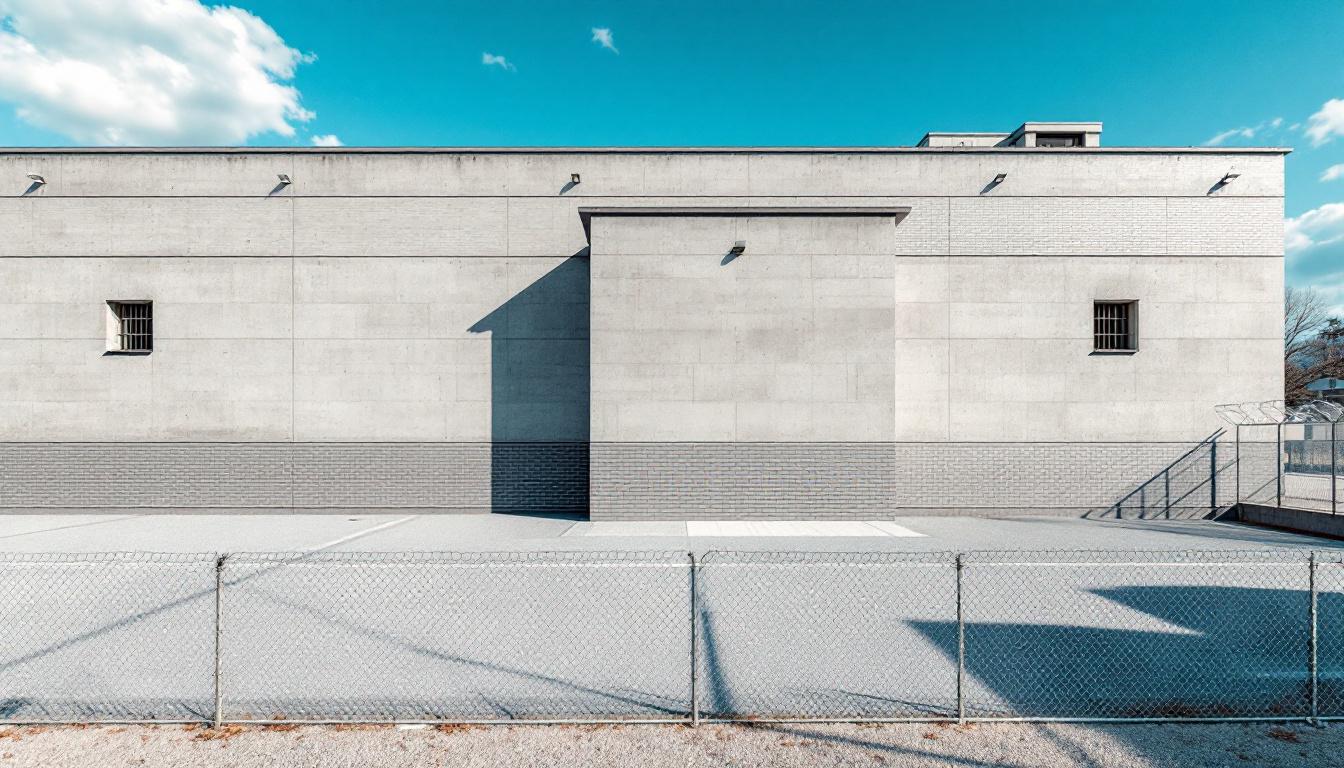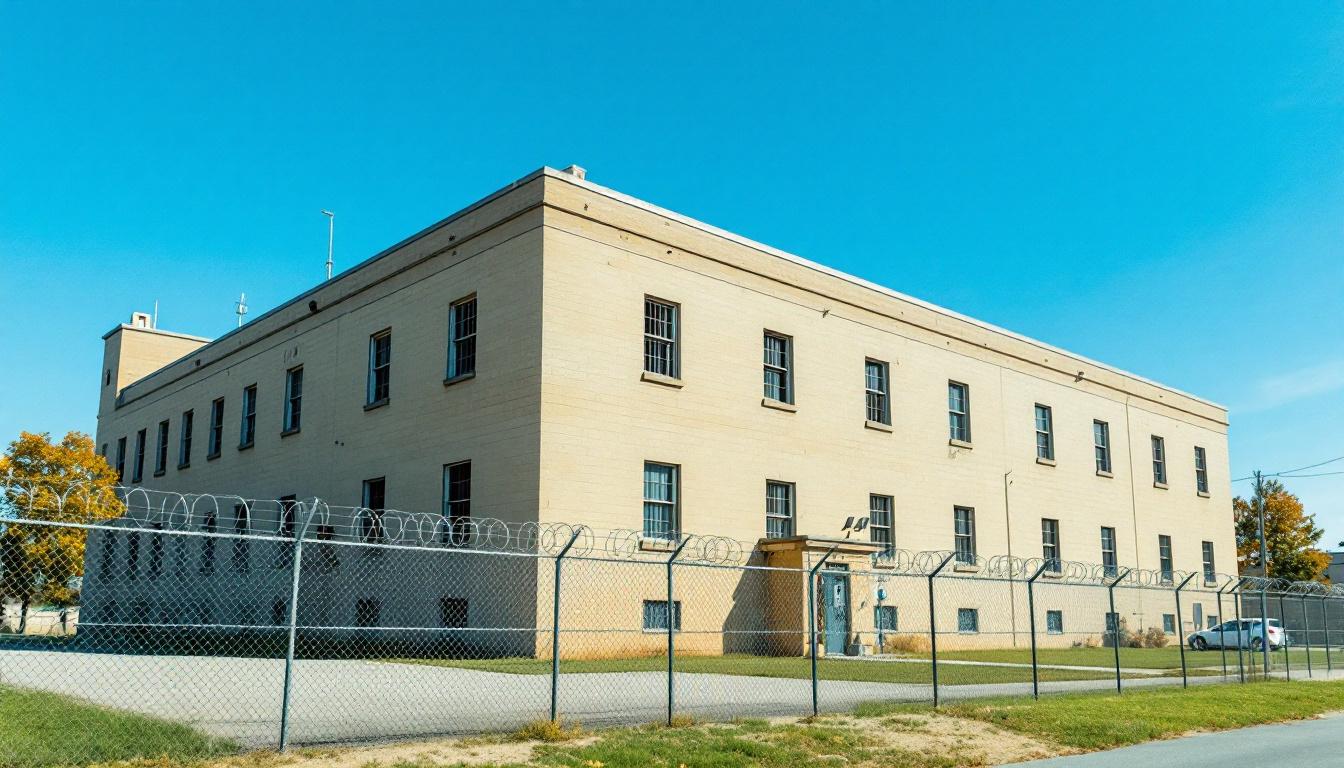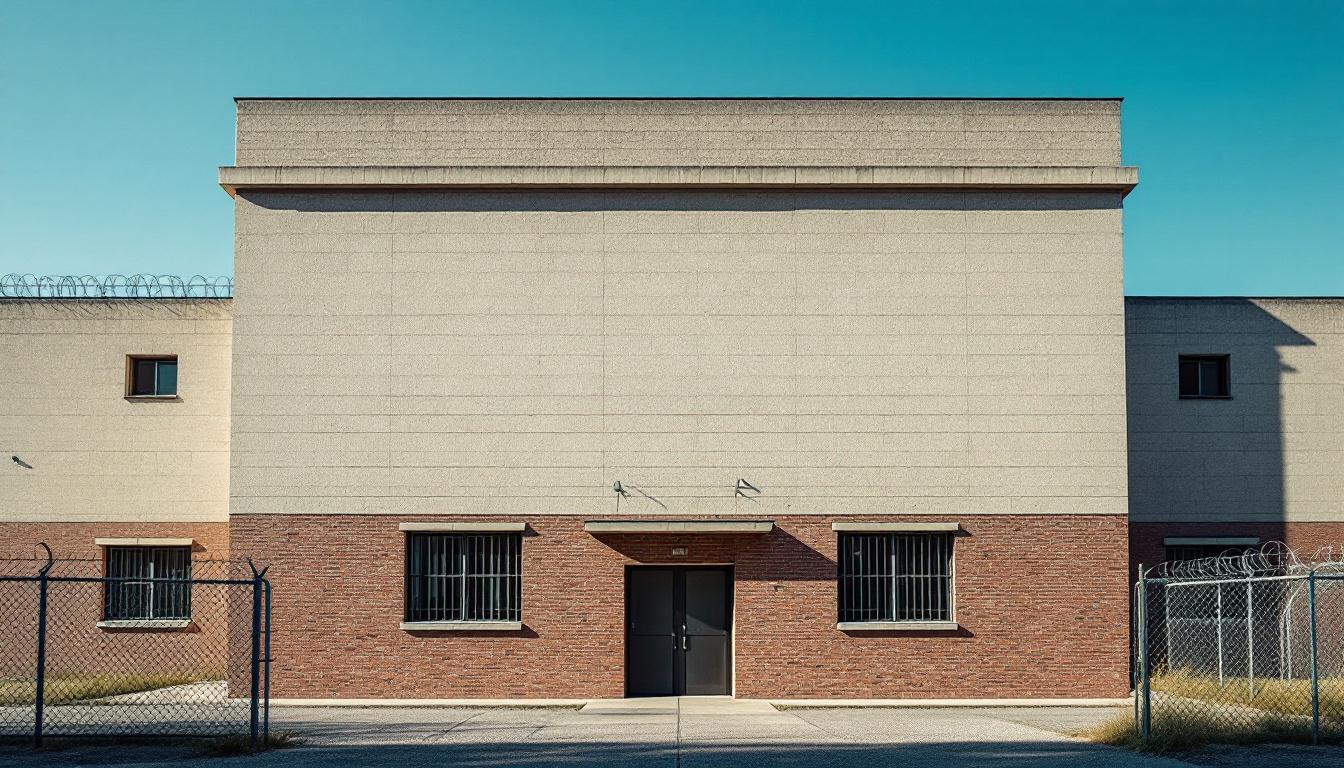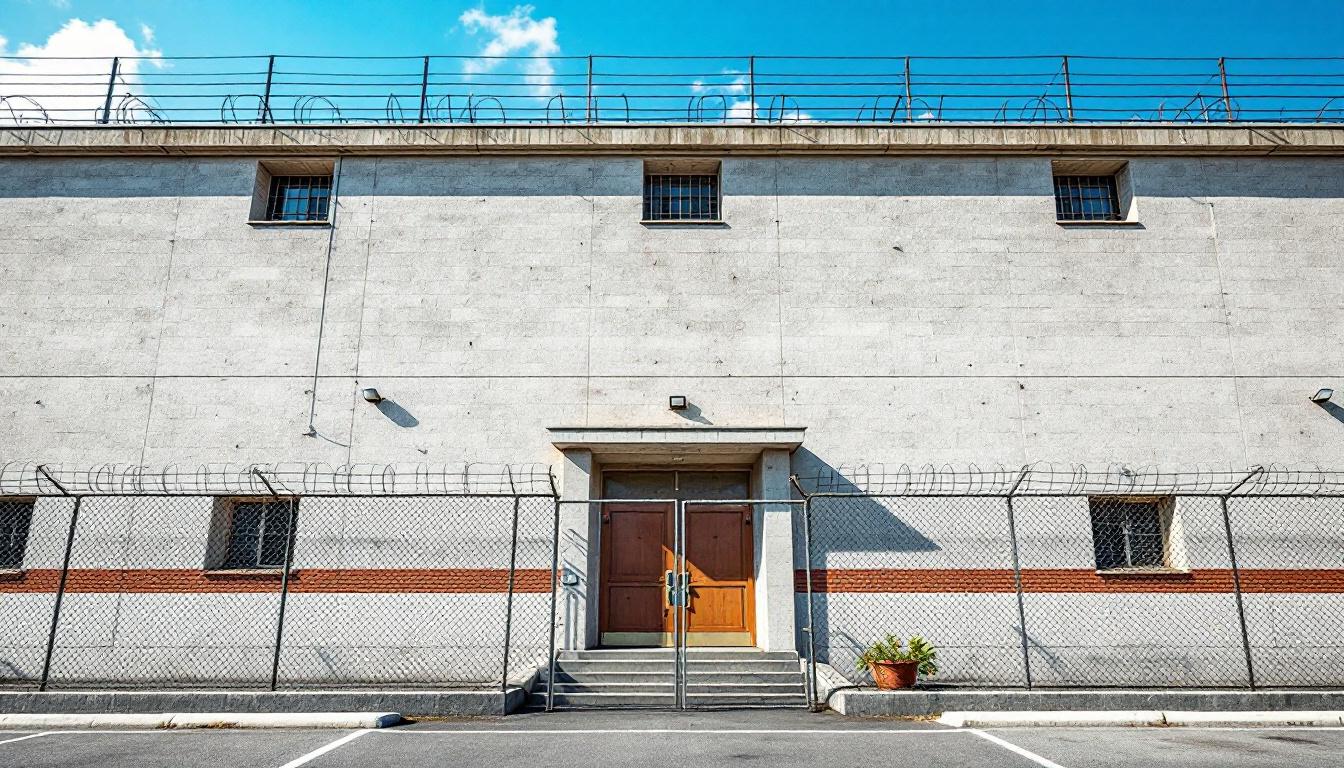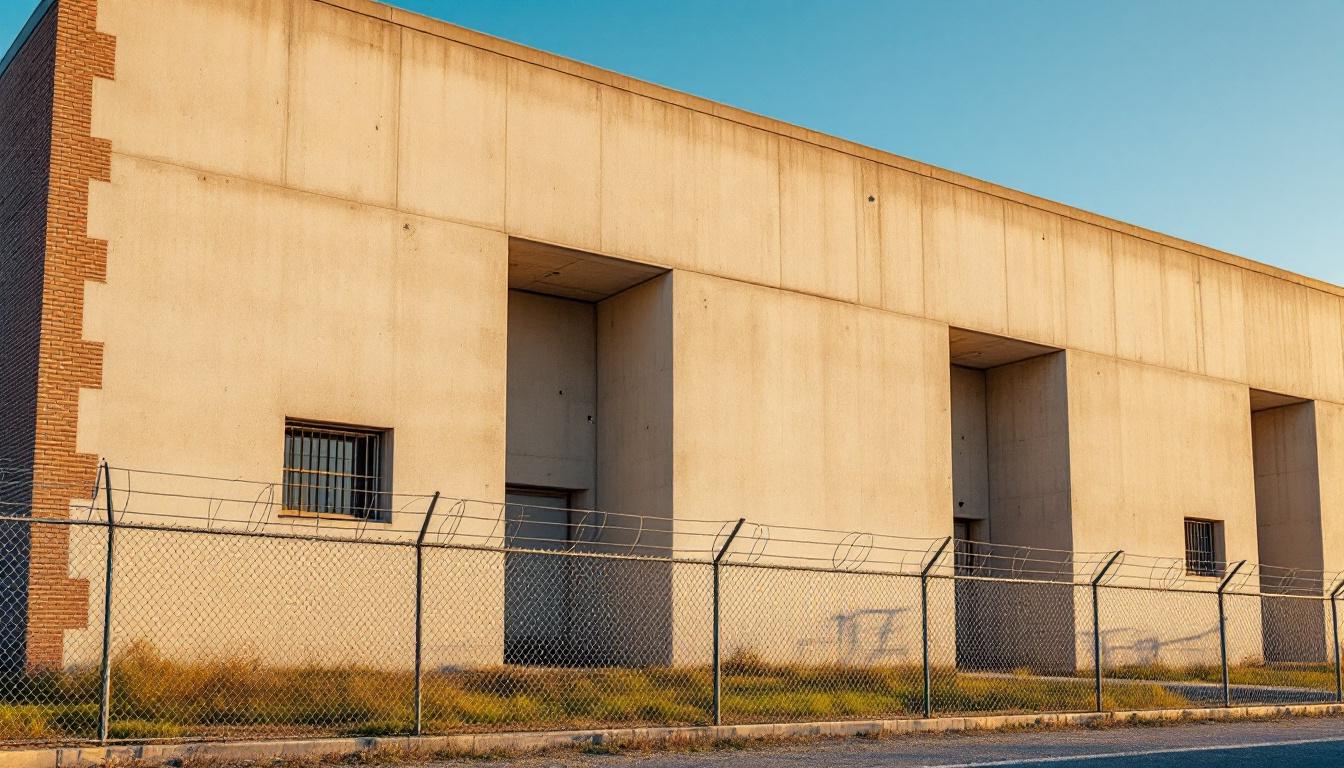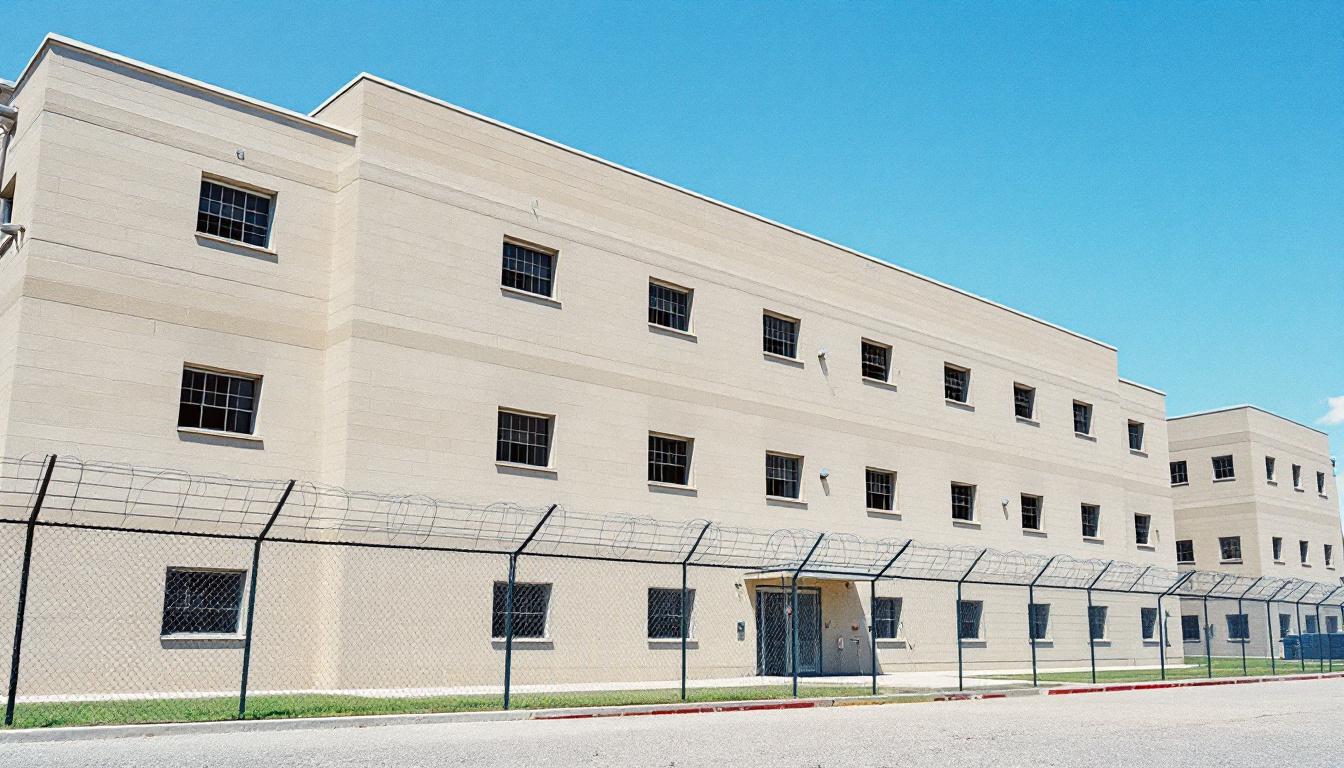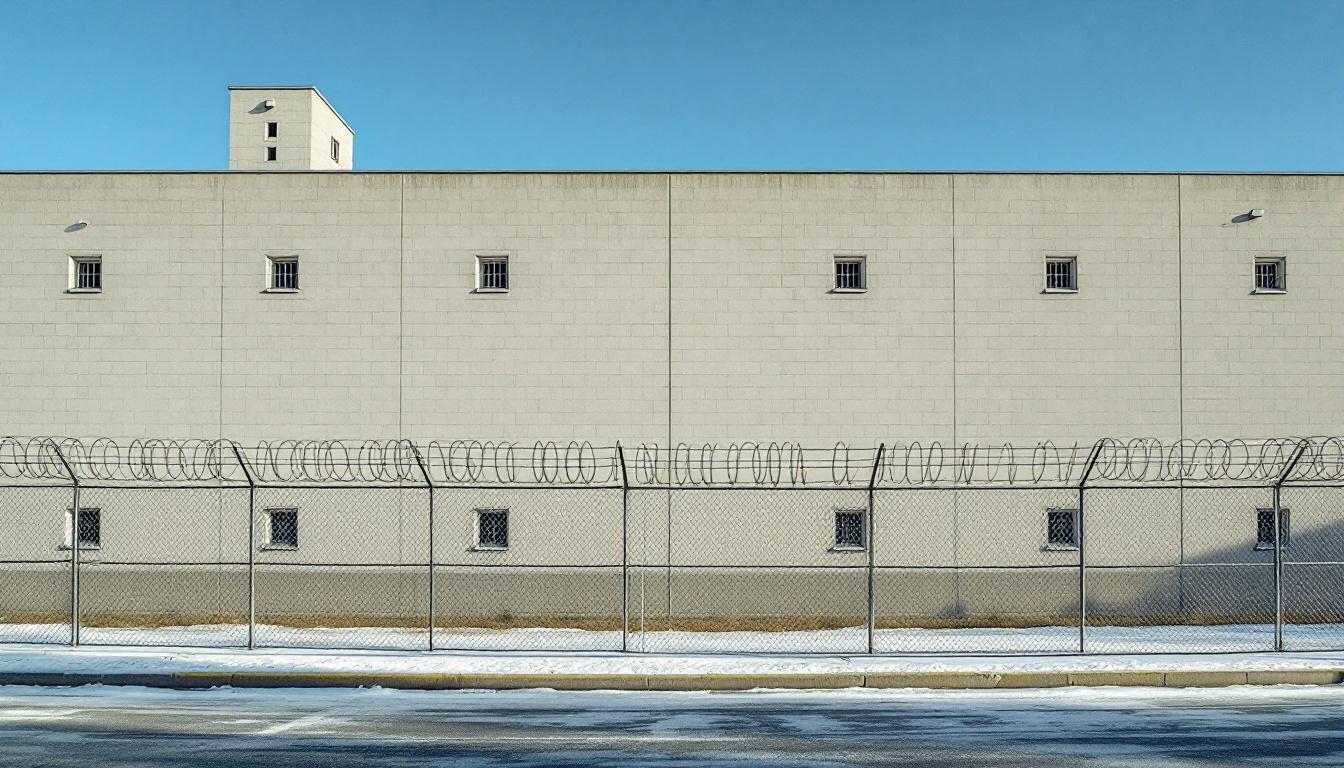
Quick Navigation
How to contact an inmate at Hardin County Sheriff’s Office
This comprehensive guide will walk you through how to connect with an inmate at Hardin County Sheriff’s Office. Follow the steps below to find an inmate and send letters and photos:
- Search for the inmate using our search tool below
- Create your account or log in to Penmate
- Write your message (up to 6,000 characters)
- Send instantly - inmates receive printed copies daily
Find an Inmate
Search for an inmate to start communicating today
Tip: You can search by first name, last name, or inmate ID number
To contact a person at Hardin County Sheriff’s Office start by searching for the person on the official facility website. Perform a search by following these steps:
- Step 1: Enter their first name and last name into the search form and click "Search"
- Step 2: Locate their inmate record
- Step 3: Write down their Inmate ID and any housing information provided
Important! Be sure to enter the person's full name. Nicknames should not be used.
How to Send Messages to Inmates

You can use your phone or computer to send emails, letters, and photos to an inmate. Messages are sent electronically to inmate tablets or kiosks at the facility. If you would like to send a message, start by searching for an inmate at Hardin County Sheriff’s Office.
Sending Photos and Postcards

A great way to send love and support to a loved one at Hardin County Sheriff’s Office is to send photos and postcards. It only takes a few minutes to send photos from your phone and it makes a huge difference. You can also mail postcards with words of support and inspiration, or design your own postcard for special moments like birthdays and holidays.
Important! Be sure not to send any explicit photos or they may not be approved by the facility. You can also use a photo printing app like Penmate to make sure your photos are printed at the correct size (4x6 or 3x5) and are mailed according to the rules and regulations of Hardin County Sheriff’s Office.
Frequently asked questions about Hardin County Sheriff’s Office
-
How long does it take to deliver a message?
If you're sending an email message your letter is usually delivered within 24-48 hours. For messages sent via mail you should expect delivery within 3-7 days. All messages will need be approved by Hardin County Sheriff’s Office.
-
How much does it cost to send a message to Hardin County Sheriff’s Office?
You can send a message free using your phone or mail a message via USPS for the price of a $0.60 stamp and envelope. You can also purchase credits or e-stamps from services starting at $1.99.
-
What services can I use to contact an inmate at Hardin County Sheriff’s Office?
Penmate
You can use Penmate to send letters and photos to an inmate from your phone. It's an easy way to stay in touch during your loved one's incarceration. Use the inmate locator to find an inmate's location and contact information, then you can send messages within a few minutes.
Securus messaging
Securus may be another option for communicating with an inmate at Hardin County Sheriff’s Office. You can create a friends and family account and purchase credits to send messages. All messages will be reviewed and must be approved by the facility.
JPay
Some county jails and state prisons may support sending messages with JPay. You must register an account with the system, find your loved one, and purchase stamps to send messages. For some locations you can also attach photos.
Smart Jail Mail
You may also check if Smart Jail Mail is available at Hardin County Sheriff’s Office. Smart Jail Mail is operated by Smart Communications and has contracted with some state and county jails. After purchasing credits, your messages and photos are sent to the facility, printed out, and then handed out to your loved one.
-
What is the mailing address of Hardin County Sheriff’s Office?
Mailing address:
Hardin County Sheriff’s Office
300 W Monroe St
Kountze, TX 77625
Phone: (409) 246-5100 -
What are the visiting hours at Hardin County Sheriff’s Office?
Visiting hours at Hardin County Sheriff’s Office vary by housing unit and security level. Generally, visits are scheduled on weekends and holidays, with some facilities offering weekday visits. Contact the facility directly at (409) 246-5100 or check their website for the current visiting schedule. Visits typically last 30-60 minutes and must be scheduled in advance.
-
What items are prohibited when sending mail to Hardin County Sheriff’s Office?
Prohibited items typically include: cash, personal checks, stamps, stickers, glitter, glue, tape, staples, paperclips, polaroid photos, musical or blank greeting cards, hardcover books, magazines with staples, and any items containing metal or electronics. Only send letters on plain white paper with blue or black ink. Photos must be printed on regular photo paper (no Polaroids). Always check with Hardin County Sheriff’s Office for their specific mail policies.
-
How do I send money to an inmate at Hardin County Sheriff’s Office?
You can send money to an inmate at Hardin County Sheriff’s Office through several methods: 1) Online using JPay, Access Corrections, or the facility's approved vendor, 2) Money orders mailed directly to the facility with the inmate's name and ID number, 3) Kiosks located in the facility lobby, or 4) Over the phone using a credit or debit card. Fees vary by method, typically ranging from $2.95 to $11.95 per transaction.
-
Can I schedule a video visit with an inmate at Hardin County Sheriff’s Office?
Many facilities now offer video visitation as an alternative to in-person visits. At Hardin County Sheriff’s Office, video visits may be available through services like Penmate, Securus Video Connect, GTL, or ICSolutions. Video visits typically cost $10-20 for 20-30 minutes and must be scheduled in advance. You'll need a computer or smartphone with a camera and reliable internet connection. Contact the facility for their specific video visitation policies and approved vendors.
-
What identification do I need to visit an inmate at Hardin County Sheriff’s Office?
All visitors must present valid government-issued photo identification such as a driver's license, state ID, passport, or military ID. Minors must be accompanied by a parent or legal guardian who can provide the minor's birth certificate. Some facilities require visitors to be on the inmate's approved visitation list, which may require a background check. Contact Hardin County Sheriff’s Office for specific ID requirements and visitor approval procedures.
-
How can I find out an inmate's release date?
To find an inmate's release date at Hardin County Sheriff’s Office, you can: 1) Use the online inmate search tool if available, 2) Call the facility's records department, 3) Contact the inmate's case manager or counselor, or 4) Have the inmate provide this information during a call or visit. For privacy reasons, some facilities only release this information to immediate family members.
Facility Overview
Contact Information
Hardin County Sheriff’s Office300 W Monroe St
Kountze, TX 77625
Phone: (409) 246-5100
Official Website

About Hardin County Sheriff’s Office
Within the East Texas community of Kountze, the Hardin County Jail, TX operates as a fundamental component of the regional corrections network, processing individuals through various stages of the judicial system. This TX correctional facility typically manages both pre-trial detainees awaiting court proceedings and sentenced individuals serving shorter-term commitments, functioning as a critical link between initial arrest procedures and longer-term correctional placements. The facility's operational philosophy generally emphasizes systematic processing while maintaining security protocols that align with state correctional standards and community safety requirements.
The institution's approach to residents services often includes basic educational opportunities and programming designed to address immediate needs during incarceration periods. County jail operations typically focus on maintaining structured daily routines that may incorporate work assignments, educational assessments, and preparation for court appearances or eventual release. Through coordination with regional judicial systems and state correctional authorities, the facility generally processes individuals according to established timelines while providing access to legal resources and communication systems that support ongoing legal proceedings.
As part of Hardin County's broader public safety infrastructure, this correctional facility typically maintains connections with local courts, law enforcement agencies, and community organizations that may provide transitional support services. The institution's role within the regional corrections network often involves coordinating transfers to state facilities for longer sentences while managing the complex logistics of housing individuals at various stages of legal proceedings, contributing to the systematic administration of justice throughout the East Texas region.
Programs & Services
Comprehensive rehabilitation initiatives at Hardin County Jail emphasize skill development and personal transformation through carefully structured programming. The facility's approach recognizes that meaningful change occurs when residents engage in purposeful activities that address both immediate needs and long-term reintegration goals. These multifaceted initiatives typically create pathways for personal growth while fostering accountability and self-improvement among participants.
Educational and vocational training initiatives form the cornerstone of the facility's rehabilitation efforts, offering residents opportunities to develop marketable skills and academic credentials. Vocational training programs may deliver instruction in various trades and technical fields, providing hands-on experience that translates directly to employment opportunities upon release. These initiatives often include structured learning environments where residents can build both technical competencies and workplace readiness skills essential for successful community reintegration.
Moreover, therapeutic and support services complement the educational framework through individual counseling sessions and faith-based initiatives designed to address underlying issues contributing to criminal behavior. Work programs typically provide residents with structured daily activities while developing responsibility and work ethic, often incorporating recycling programs that benefit both the facility and environmental sustainability. Religious services may offer additional spiritual support and community connection, creating comprehensive support networks that address the diverse needs of the resident population through holistic programming approaches.
Daily Life & Visitation
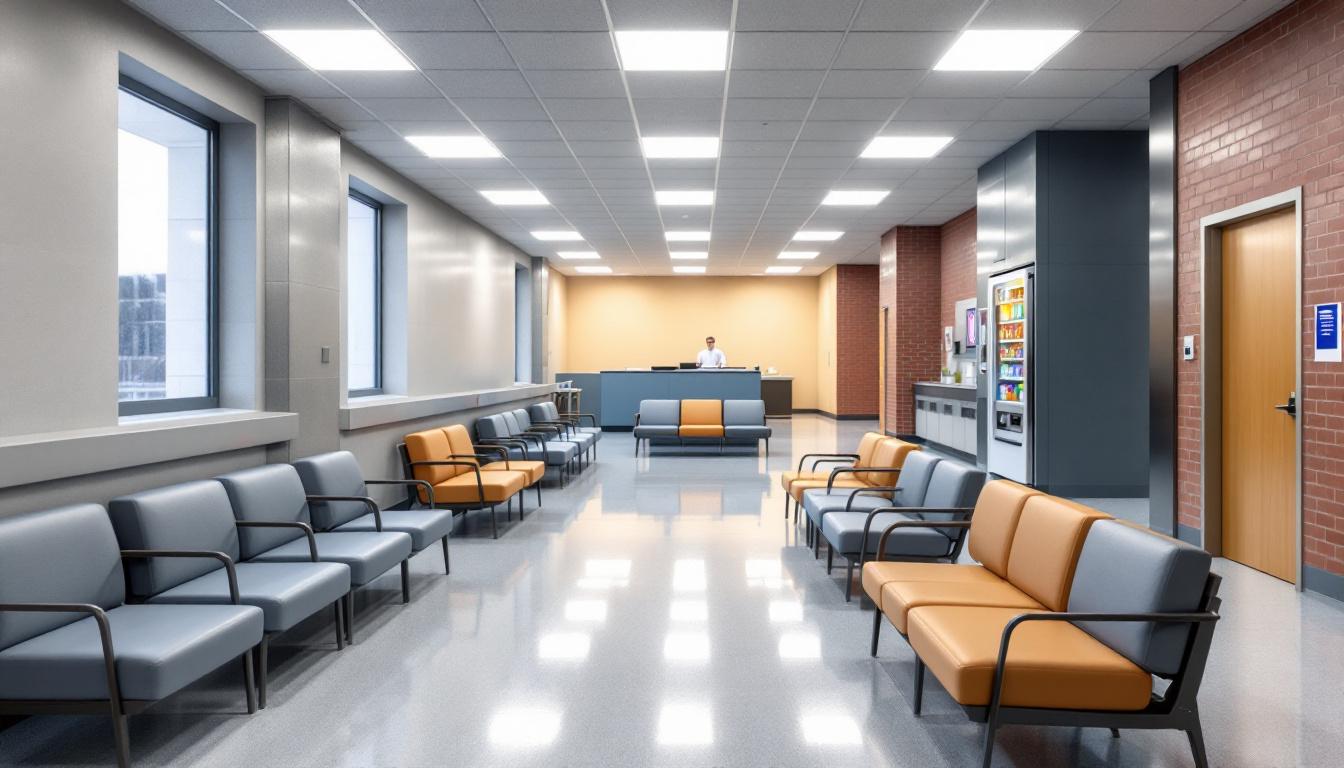
The steady rhythm of structured schedules currently forms the backbone of residential life, where each day unfolds with predictable patterns that help residents navigate their time with greater certainty. Morning routines typically begin with wake-up calls followed by personal hygiene time and cell inspections, while meal periods generally occur at consistent intervals throughout the day. This framework continues to provide residents with a sense of stability, as they can anticipate what comes next in their daily schedule, from recreational periods to programming activities that deliver both structure and purposeful engagement.
Living accommodations at the facility typically feature housing units designed to maintain security while providing basic necessities for daily life. Residents generally share cells or dormitory-style housing, with personal property allowances that may include approved clothing, hygiene items, and limited personal effects. Moreover, the dining arrangements usually involve scheduled meal times in designated areas, where residents receive nutritionally planned meals that meet dietary standards. The commissary system often allows residents to purchase additional approved items, providing some personal choice within the structured environment.
Programming schedules deliver various opportunities for residents to engage in constructive activities during their stay. Recreation periods typically include supervised outdoor time when weather permits, along with indoor activities that may offer physical exercise and social interaction. Whereas structured programming varies, residents often have access to educational opportunities, work assignments within the facility, and other activities designed to maintain routine and purpose. Family connections remain important through scheduled visitation periods and communication options such as phone calls and mail, helping residents maintain relationships with their support systems while adapting to the facility's structured daily environment.
Ready to Connect?
Start communicating with your loved one today
Search for an Inmate
